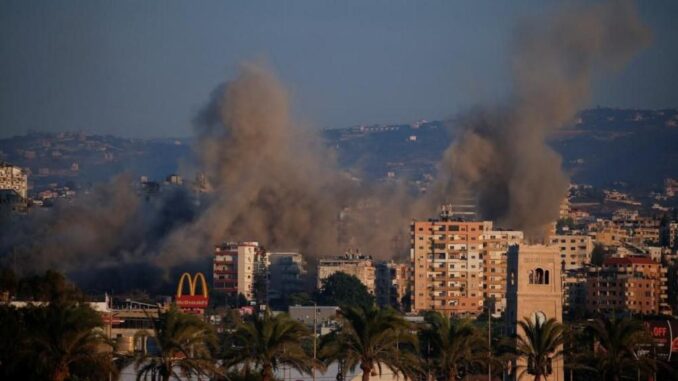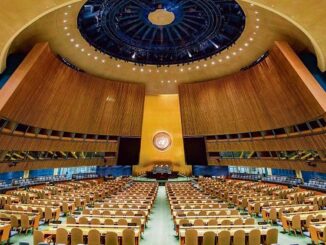

The ongoing conflict between Israel and Palestine, stretching back over a century, has been one of the most enduring and volatile disputes in modern history. In recent years, particularly with the leadership of Israeli Prime Minister Benjamin Netanyahu, this conflict has escalated to dangerous new heights. At its core, the Israeli-Palestinian conflict involves territorial disputes, religious differences, and issues of national identity. However, as tensions rise, it is not just the Middle East that faces a dangerous future—the entire world may be on the precipice of a catastrophic Third World War if hostilities are not brought to a halt.
The origins of the Israeli-Palestinian conflict can be traced back to the late 19th century, when waves of Jewish immigration to Palestine, then under Ottoman rule, began as part of the Zionist movement. The Zionist aim was to establish a Jewish homeland in response to centuries of anti-Semitism and persecution in Europe. This increased tension between Jewish and Arab communities in the region, especially as both groups laid claim to the same land.
After World War I and the collapse of the Ottoman Empire, the British took control of Palestine under a League of Nations mandate. The Balfour Declaration of 1917, which promised a Jewish homeland in Palestine, further inflamed Arab resentment. Jewish immigration continued, and by the time of World War II, tensions had escalated into violence between the two communities.
The United Nations‘ 1947 partition plan proposed a division of the land into separate Jewish and Arab states, but this was rejected by Arab leaders, leading to the 1948 Arab-Israeli War. Israel declared independence, and its victory in that war resulted in the displacement of hundreds of thousands of Palestinians, an event known as the Nakba (“catastrophe” in Arabic).
Since then, Israel has fought several wars with its Arab neighbors, while the Palestinian people have remained stateless. Israel’s occupation of the West Bank, Gaza Strip, and East Jerusalem following the 1967 Six-Day War has been a flashpoint for the conflict. Despite attempts at peace—such as the Oslo Accords of the 1990s—the conflict remains unresolved, and the situation has only worsened in recent years.
One of the reasons the Israeli-Palestinian conflict has persisted for so long is the political dynamic within Israel, particularly under the leadership of Benjamin Netanyahu. As Israel’s longest-serving prime minister, Netanyahu has built much of his political career on the premise of Israel’s survival being contingent on strong leadership, especially in the face of external threats. He has continually portrayed Palestinians and their allies as existential enemies of the Israeli state.
Netanyahu’s political survival has often seemed intertwined with the perpetuation of conflict. During times of relative peace, he has faced increased scrutiny at home over allegations of corruption and mismanagement. However, during periods of heightened conflict, Netanyahu has consistently positioned himself as the indispensable protector of Israeli security. By framing the conflict as one of survival, he rallies public opinion around his leadership, diverting attention from domestic scandals and other pressing issues.
It is easy to see why the Israeli-Palestinian conflict, under Netanyahu, has become an endless loop. Whenever there is a glimpse of potential peace, or when international pressure for negotiations mounts, Netanyahu’s government has often taken hardline stances, continuing settlements in the West Bank or carrying out military operations in Gaza. As long as the conflict remains unresolved, Netanyahu maintains his narrative of being the only leader capable of defending Israel against its enemies.
On the other side of the conflict, the Palestinians view themselves as a people who have been systematically denied their right to self-determination. For decades, they have lived under Israeli occupation in the West Bank and Gaza Strip, facing restrictions on movement, economic hardship, and frequent military incursions. The situation in Gaza, in particular, has been described by international organizations as a humanitarian crisis, with blockades limiting access to basic necessities.
The Palestinian leadership, divided between the Palestinian Authority in the West Bank and Hamas in Gaza, has been unable to present a unified front in negotiations. Hamas, considered a terrorist organization by Israel and many Western countries, sees the conflict as a religious struggle against Israeli occupation. However, both Palestinian factions, along with much of the Arab world, insist that Palestinians must have the right to an independent state.
For Palestinians, the continued expansion of Israeli settlements in the West Bank is a symbol of the ongoing denial of their sovereignty. These settlements, which violate international law, have grown under Netanyahu’s watch, further entrenching the occupation. Many Palestinians, especially younger generations, have lost faith in the possibility of a two-state solution and instead demand equality and civil rights in a single, binational state—a prospect Israel vehemently opposes.
While the Israeli-Palestinian conflict is a localized struggle, its potential to ignite a broader, global conflict should not be underestimated. As we have seen in recent years, regional wars often have international consequences. The Middle East, already a powder keg of sectarian violence, geopolitical rivalries, and foreign intervention, could easily become the stage for a much larger war involving global powers.
The United Nations, which was founded to prevent precisely this kind of escalation, has been largely ineffective in addressing the conflict. In fact, Israel recently barred UN Secretary-General António Guterres from entering the country after he failed to condemn Iran for its alleged involvement in attacks on Israel. This incident underscores the extent to which international institutions have been sidelined in the conflict, with neither side trusting the UN to broker a fair resolution.
Moreover, global powers, including the United States, Russia, China, and the European Union, have been reluctant to take meaningful action. Each has its own geopolitical interests in the region, and these interests often conflict with the goal of achieving peace. The U.S., for instance, has been Israel’s staunchest ally, providing it with military aid and diplomatic cover at the UN. Meanwhile, Russia and Iran have supported Palestinian factions, particularly Hamas, as part of their broader strategy to challenge U.S. influence in the Middle East.
If these global powers continue to prioritize their own strategic interests over the need for peace, the conflict could spiral out of control. A regional war involving Israel, Palestine, Iran, and their respective allies could easily draw in the U.S., Russia, and other major powers. Given the advanced military capabilities of these nations, including nuclear arsenals, the risk of a Third World War is a very real and terrifying prospect.
It is clear that the Israeli-Palestinian conflict will not resolve itself, nor will it be solved through force of arms. Wars in the modern world bring only destruction and misery, and no nation can remain unaffected by the chaos that ensues in another, regardless of geographic distance. In an interconnected world, the instability of one region can easily ripple across borders, disrupting global economies, displacing populations, and increasing the threat of terrorism.
The world must act collectively and decisively to bring an end to this conflict. Nations should put aside their individual agendas and unite in their efforts to mediate peace. There must be renewed international pressure on both Israel and Palestine to return to the negotiating table and work toward a two-state solution that respects the rights and security of both peoples.
India, with its ancient philosophy of “Vasudhaiva Kutumbakam”—the world is one family—offers a valuable lesson in diplomacy. When there is conflict within a family, the other members must step in and mediate to bring about reconciliation. The international community must adopt this mindset and take the necessary steps to prevent a global catastrophe.
The time to act is now. If the world continues to ignore the escalating violence in the Middle East, we may find ourselves facing a war the like of which we have not seen since 1945. Let us not wait until it is too late.




Be the first to comment